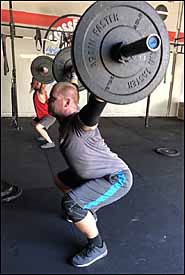One of my current joys is to hold my tiny month-old granddaughter in my arms. Actually, she’s so small I can cradle her in one arm. She isn’t really aware of my arms, just my warmth and my breathing that comfort her. She’s a sweetheart. Grandpa is content just to hold her as she falls asleep. We see tender arms when Isaiah writes of the Lord Yahweh as a Shepherd:
“He will tend His flock like a shepherd;
He will gather the lambs in His arms;
He will carry them in His bosom,
and gently lead those that are with young. (Isaiah 40:11, ESV)
An old hymn, taken from Deuteronomy 33:27, has a similar concept of God’s arms:
“Leaning, leaning, safe and secure from all alarms;
Leaning, leaning, leaning on the everlasting arms.
And that’s all good and true. But as I read Deuteronomy 33:27, the arms seem to have another meaning. Let’s look at the passage together. Why don’t you open your Bible and turn to it — Deuteronomy 33:26-29.
Jeshurun = Israel, God’s Favorite Child (verse 26)
Moses is preparing to die on Mount Pisgah, after which Joshua will take over and lead Israel across Jordan, and on to conquer the cities of Canaan, beginning with Jericho.
Moses has just blessed each of the 12 tribes by name. Now he concludes a series of individual blessings with a prophetic blessing over Israel as a whole, encouraging them as they prepare to enter the Promised Land.
“There is none like God, O Jeshurun,
who rides through the heavens to your help,
through the skies in His majesty.” (Deuteronomy 33:26)
Moses refers to Israel with a kind of pet name, Jeshurun, “upright one,” a name of endearment that refers to Israel’s ideal character.God will “ride through the heavens” to help them when they’re in trouble.Jeshurun, Israel, is God’s favorite child. My pastor, Greg Krieger, always claims to be “God’s favorite child.” And when the congregation begins to groan at his audacious boasting, he grins and acknowledges that, indeed, all of us are God’s favorites. Like Jeshurun. There’s a real sense that God’s pledges to help Israel are His pledges to help us, too, when we’re in trouble.
The Eternal God Is Your Dwelling Place (verse 27a)
“The eternal God is your dwelling place,
and underneath are the everlasting arms. (Deuteronomy 33:27a)
God is prepared to help Jeshurun (Israel) at any time. In turn, verse 27 tells us that God’s favorite child dwells with God.
The NIV and KJV translate Hebrew meʿōnâ as “refuge,” denoting a place to retreat to in time of danger, like we see in Psalm 91. Here, however, is “dwelling place” (ESV) is more accurate.We dwell with God. We make our habitation in him, intricately interconnected as His Holy Spirit infuses our personal spirit.
We’ll come to interpreting the line, “and underneath are the everlasting arms,” after we’ve studied the rest of Moses’ blessing.
A People Saved by Yahweh (verses 27b-29)
And He thrust out the enemy before you
and said, ‘Destroy.’
28 So Israel lived in safety,
Jacob lived alone..” (Deuteronomy 33:27b-28a)
Soon, Israel will cross Jordan, and conquer the fortified cities of the Promised Land. With the exception of Jericho, they will fight hand to hand, but God will bring the victory. Yahweh is the One “thrusting out the enemy,” forcing out inhabitants of the land, the Canaanites and Hittites, Amorites and Jebusites, and all the rest. The result is that Israel will live by themselves, at peace in the land God has helped them to conquer. It is a good and rich land.
“… in a land of grain and wine,
whose heavens drop down dew.” (Deuteronomy 33:28b)
Israel is indeed blessed by God.
Happare you, O Israel!
Who is like you,
a people saved by the LORD,
the Shield of your help,
and the Sword of your triumph!
Your enemies shall come fawning to you,
and you shall tread upon their backs.” (Deuteronomy 33:27b-29)
Yes, the Israelites will fight, but the real Sword and Shield is Yahweh Almighty, and through Him they conquer the land. They are a blessed people, “a people saved by the Lord.”
When we struggle to move the Kingdom forward, to overcome the obstacles, and resist the temptations the enemy puts in our way, God is our Shield and Sword. The battle is the Lord’s — and He is mighty! Don’t give up!
Underneath Are the Everlasting Arms (verse 27a)
Now that we’ve looked at the entire blessing of Jeshurun (God’s pet name for Israel), let’s come back to the phrase, “and underneath are the everlasting arms.”
“The eternal God is your dwelling place,
and underneath are the everlasting arms.” (Deuteronomy 33:27a)
These two lines exhibit Hebrew parallelism, a characteristic of Hebrew poetry often found in prophetic passages such as ours. The first line makes the statement, while the second repeats the idea in other words and carries it a bit further.
Line 1 refers to the “eternal” God, while line 2 references His “everlasting”arms. The words are synonymous. Our enemies are temporal, newcomers to the scene, but our God is timeless and forever. He is the “I AM WHO I AM” (Exodus 3:14) who always IS. He is, and was, and is to come (Revelation 1:4, 8), the Alpha and the Omega (Revelation 1:8). Yahweh has been from before the beginning and His arms are ancient.
But what about the arms that are “underneath”?Are we talking about (a) tender arms that hold and carry? (b) supportive arms to lean on? (c) or open arms to welcome and embrace?
The Bible refers to arms in all these ways. But I think that here, “arms” is used in a different sense altogether. The context of the blessing in verses 26-29 is God fighting for Israel in the face of their enemies. That would suggest the strong armof the warrior that wields a sword and shield in battle.Many times we read of God’s strong deliverance of His people from Egypt, “by a mighty hand and an outstretched arm.”
Often in the Old Testament, the hand isn’t mentioned at all, only the mighty, outstretched, holy arm of Yahweh, the Lord of hosts (armies). The arm is the symbol of strength and deliverance.
“I will redeem you with an outstretched arm.” (Exodus 6:6)
“You with your arm redeemed your people.” (Psalm 77:15)
“With [the king of Assyria] is an arm of flesh,
but with us is the LORD our God,
to help us and to fight our battles.” (2 Chronicles 32:8)
“The LORD has bared His holy arm before the eyes of all the nations,
and all the ends of the earth shall see the salvation of our God.” (Isaiah 52:10)
Isaiah offers a wonderful prayer:
“O LORD, be gracious to us; we wait for you.
Be our arm every morning,
our salvation in the time of trouble.” (Isaiah 33:2)
Summing It Up
Since the context of our passage is protection and deliverance, I think strength to deliver is the sense of the “everlasting arms” in our passage.
“The eternal God is your dwelling place,
and underneath are the everlasting arms.” (Deuteronomy 33:27a)
We live in Him, we dwell in Him and He in us. He is our home. We enjoy His presence. The relationship isn’t really about war, but love. But whenever trouble strikes or the enemy attacks, His Ancient Arms are ready to defend us or to utterly rout the enemy. That doesn’t mean we aren’t to exercise the powerful weapons of spiritual warfare that He has given us. We are. But when we get out of our depth, beyond the training we’ve received so far in the Lord, His arms emerge from “underneath” to fight on our behalf. The colloquial expression, “He’s got your back,” describes it well.
My friend, enjoy the Eternal God. Live in the “dwelling place” of His presence, sharing your day-to-day life with Him, secure in the knowledge that, whenever needed, His strong Ancient, Eternal, Everlasting Arms will fight on your behalf and win the day. After all, you, like Jeshurun, are God’s favorite child.
Source:joyfulheart



